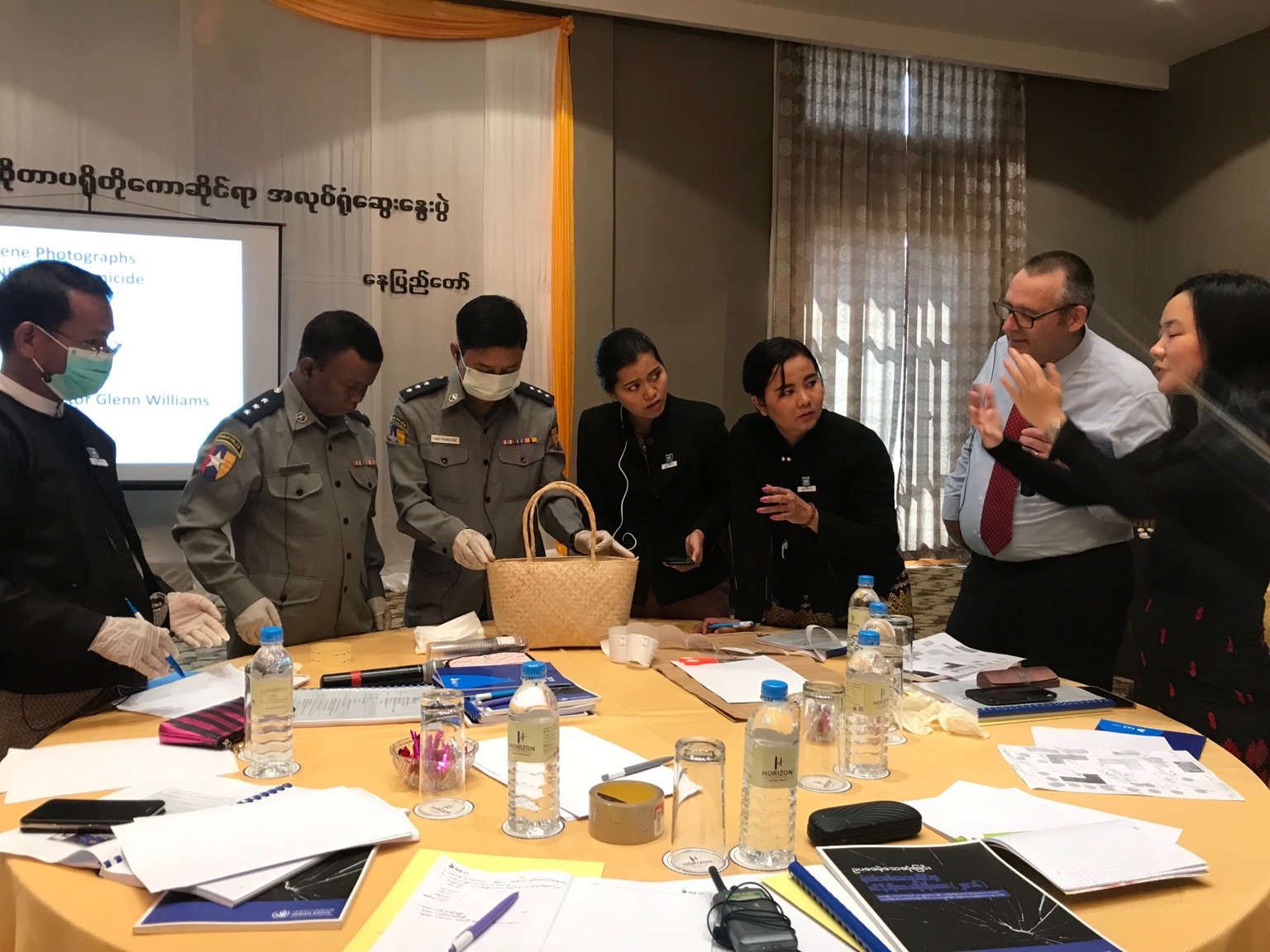The ICJ hosted a two-day workshop on 28-29 October 2019 in Myanmar’s capital, Nay Pyi Taw. Organized jointly with the Union Attorney General’s Office (UAGO), 15 prosecutors and ten members of the Myanmar Police Force attended this event, entitled “Workshop on the Minnesota Protocol.”
Participants included persons involved in the conduct of criminal investigations, as well as senior members with oversight of their work. The workshop was opened with remarks by His Excellency U Win Myint, Deputy Attorney General of the UAGO, and Sean Bain, Legal Adviser for the ICJ in Myanmar. Both speakers underscored the importance of conducting effective investigations according to international standards.
The Minnesota Protocol provides guidance on the State’s implementation of its duty under international law to effectively, thoroughly and impartially investigate potentially unlawful killings, including when State actors may have been involved. It applies to deaths under custody, suspicious deaths, and suspected cases of enforced disappearance. The workshop takes place in a context in which Myanmar has experienced well documented and widespread incidences of such unlawful killings amounting to serious crimes under international law.
An overview of the international human rights law framework was provided by ICJ Associate Legal Adviser Jenny Domino, highlighting how the conduct of prompt, effective and impartial investigations into unlawful killings is a core component of the State’s obligation to uphold the right to life, binding on all States under international law. ICJ Legal Researcher Ja Seng Ing provided an overview of the contents of the Minnesota Protocol, including a discussion of its 2016 revision to align it with contemporary norms and practices.
Glenn Williams, an experienced international criminal investigator and Detective Inspector (Retired) of the New Zealand Police Force explained how to properly secure a crime scene and chain of custody in order to preserve the integrity of the evidence. Participants applied these skills in a group exercise based on a real-life case from the Solomon Islands. He also presented on the proper conduct of witness interviews, emphasizing the need to frame questions in a manner that would avoid the re-traumatization of victims. Glenn Williams further shared the investigative challenges of dealing with telecommunications evidence from his time at the Special Tribunal for Lebanon.
Dr. Porntip Rojanasunan, a forensic pathologist in Thailand and Member of the Expert Advisory Panel during the Minnesota Protocol revision process, shared her forensic expertise through illustrative cases that she had worked on in Southeast Asia in the past two decades. Dr Porntip stressed the importance of forensic pathology in determining the true cause of death. She also emphasized the importance of conducting an autopsy in potential cases of human rights violations.
The workshop is part of the ICJ’s ongoing promotion of international human rights law and standards globally. In Asia, this has included engagement with Myanmar authorities as well as authorities in neighboring countries.
See also:
Myanmar: ICJ discusses the Minnesota Protocol with prosecutors
ICJ Oral statement in the interactive dialogue with the fact finding mission on Myanmar
Report: Achieving Justice for Gross Human Rights Violations in Myanmar
Related material:
Minnesota Protocol (unofficial Burmese translation)




